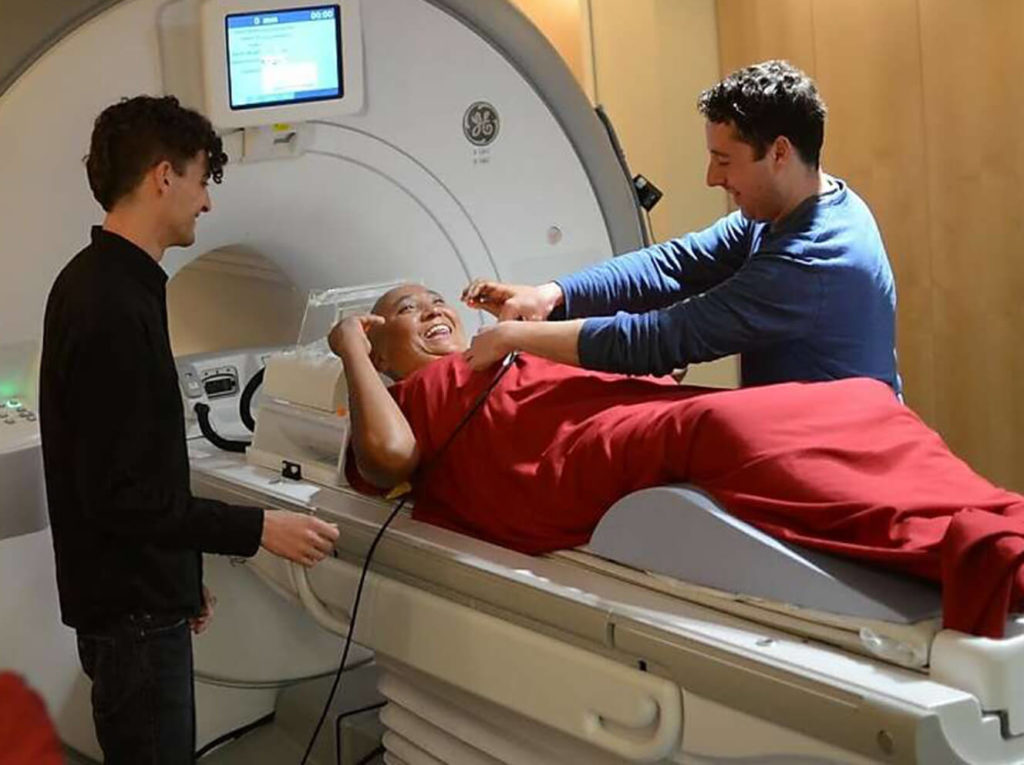Angela Fitch, MD, FACP, FOMA, associate director of the Massachusetts General Hospital Weight Center, treats adult and pediatric patients for obesity, diabetes management and weight loss. She has used intermittent fasting, where eating is restricted for periods of time, combined with a healthy diet, to help patients lose weight and feel healthier.
What is intermittent fasting and why might it be helpful?
Intermittent fasting means setting a period of time when you do not eat. This allows the body to better metabolize food and can help patients lose weight. It may have other benefits, too, such as decreasing cancer risk, managing autoimmune diseases and even adding years to a person’s life.
It actually matters when we eat. Not just what we eat, or how much.
Our eating patterns differ from those of our ancestors’. They likely went for long periods without food. They ate their largest meal closer to mid-day and went to bed early. Sometimes, they had little food to survive on.
For many of us, food is plentiful, always available, and most of what we eat is processed. We are more sedentary than our ancestors, and we sleep less and eat more food, more often.
Intermittent fasting is really about getting our eating in-line with our circadian rhythms, the physical, mental and behavioral changes in our bodies that follow a daily cycle. These rhythms are most influenced by daylight. Irregular rhythms have been linked to obesity, sleep disorders, diabetes and depression. It actually matters when we eat. Not just what we eat, or how much.
What plan do you recommend for intermittent fasting?
There are three things to consider. First, the quality of the food you consume. You should eat mostly whole foods from plants or animals. And you should limit processed items, such as cookies, cereals, crackers and chips.

Second, the quantity of food you are eating. After fasting, you can’t binge-eat. If you are trying to use intermittent fasting to lose weight, you should cut your calorie consumption by 30 percent — in addition to limiting the window of time in which you are eating each day.
And third, the timing. I suggest beginning with 10 consecutive fasting hours each day. Every few weeks, add a fasting hour, until you reach 16 hours, or a comfortable point. Longer than 12 hours of fasting produces metabolic health benefits. But at more than 16 hours, those benefits level off.
During fasting, water and drinks with no calories, such as coffee and tea without sugar, cream or sweeteners are permitted. Most patients prefer to eat dinner, then fast, which allows them to sleep through some of their fasting hours and eat breakfast later in the day. Eating more in the morning and less in the evening is better for metabolic fitness but it is hard to do because eating is also a social activity, especially for dinner.
Other options include consuming 500 calories every other day. Or a fasting-mimicking diet, where eating is restricted for five consecutive days and special foods, mostly fats, like olives and fatty acids, and some protein and bone broth are consumed.
At Mass General, we encourage patients to eat healthy 80 percent of the time and help them not beat themselves up about the other 20 percent.
Who can try intermittent fasting?
Most people can try intermittent fasting. But if you have diabetes, kidney disease or heart failure, talk with your doctor first. Intermittent fasting is not recommended for a person who has an eating disorder or women who are pregnant or breastfeeding. Some early effects that may subside after a few weeks include dehydration, constipation and hunger.
Why does intermittent fasting work?
After 12 hours of fasting, insulin levels in our blood drop, allowing our bodies to burn more fat as fuel. This is helpful for patients who are insulin resistant, meaning their bodies make more insulin than normal. They may have tried healthy eating and exercise to shed pounds without success because their bodies are set to a fat-storage mode. (Insulin resistance is a precursor to type 2 diabetes.)

• Dr. Fitch Talks About Obesity
• Healthy Eating Resolutions
• Five Tips for a Healthy Weight
Using bloodwork, we can identify these patients and offer intermittent fasting, either alone, or in combination with nutritional guidance and medication.
I think intermittent fasting works well because it gives people structure. I educate my patients that in order to successfully lose weight, they must also consider factors such as accountability and creating a metabolic advantage, which fasting provides by giving the body a way to convert more of its fat to fuel.
How can family members help a person who needs to lose weight?
Families and couples should approach weight loss together. Without paying attention to our eating and lifestyle, by 2030, half of us are predicted to have the disease of obesity. Many patients who struggle with their weight, blame themselves. Society blames them as well. At the Mass General Weight Center, we encourage patients to eat healthy 80 percent of the time. We help them not to beat themselves up for the other 20 percent when they enjoy a special meal or treat.
Dr. Fitch’s Six P’s for Successful Weight Loss
- Plan your meal portions.
- Plants should fill your plate.
- Protein should be included with meals and snacks.
- Pillow: Get enough sleep. (7 to 9 hours for healthy adults)
- Power: Be physically active, and do strength training.
- Pause: Fast from eating for at least 10 hours and more than 12, if it fits your lifestyle.
To make a donation to support the work of Dr. Fitch and her colleagues at the Mass General Weight Center, please contact us.




